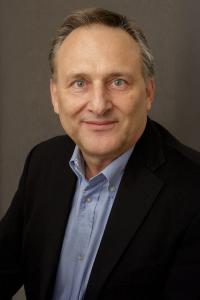Promising Treatment for Deadly Brain Cancer
A clinical trial has found that selinexor, the first of a new class of anti-cancer drugs, was able to shrink tumors in almost a third of patients with recurrent glioblastoma, an aggressive brain cancer.
“Glioblastoma is an incurable brain cancer that needs new therapeutic approaches. Considering that few treatments have any measurable effect on recurrent glioblastomas, the results are encouraging,” says the study’s leader, Andrew B. Lassman, MD, the John Harris Associate Professor of Neurology at Columbia University Vagelos College of Physicians and Surgeons and chief of the Neuro-Oncology Division at Columbia University Irving Medical Center/NewYork-Presbyterian.
“The drug induces a response in certain patients, and several trial patients stayed on selinexor for more than 12 months, including one for over 42 months,” adds Dr. Lassman, who also is associate director for clinical trials at the Herbert Irving Comprehensive Cancer Center.
The study was published January 10, 2022 in Clinical Cancer Research.
Glioblastomas are typically treated with a combination of surgery, radiation therapy, chemotherapy, and sometimes an electrical device, but the average survival time is just 12 to 18 months.
Selinexor, an oral medication, inhibits, exportin-1 (XPO-1), a major exporter of proteins from the nucleus to cytoplasm that is overexpressed in many cancers, including glioblastoma. Exportin inhibition results in retention of various tumor suppressor proteins in the nucleus, inducing reactivation of tumor suppressor function as well as other antineoplastic effects. Selinexor was approved by the FDA for the treatment of refractory multiple myeloma and relapsed/refractory diffuse large B-cell lymphoma and had pre-clinical activity against glioblastoma models.
Dr. Lassman led the international phase 2 trial to identify the optimal dosing schedule and evaluate the safety and efficacy of selinexor in adults with recurrent glioblastomas whose cancer had progressed following initial treatment.
Reduction in tumor size was observed in 28% of patients, and a tolerable dose was identified for future human trials already ongoing at Columbia and collaborating sites.
The most common treatment-related side effects were fatigue (61%), nausea (59%), decreased appetite (43%), and low platelet counts (43%). All these side effects were manageable with supportive care and dose modification.
There were also a robust set of molecular correlative analyses performed, including an effort led by Andrea Califano, Dr., chair of the Department of Systems Biology at Columbia University Vagelos College of Physicians and Surgeons, to identify a molecular signature in baseline tumor tissue that is predictive of patient benefit from selinexor. Drs. Lassman, Califano, and others are planning a subsequent study to validate this signature in a subsequent trial of patients with newly diagnosed glioblastoma.
“Taken together, we believe that our findings show that selinexor is an active drug in some patients with glioblastoma and is worthy of further study,” says Dr. Lassman.
An ongoing trial available at Columbia is evaluating the safety and efficacy of selinexor in combination with other therapies for patients with newly diagnosed or recurrent glioblastoma.
More information
The paper is titled “A Phase 2 Study of the Efficacy and Safety of Oral Selinexor in Recurrent Glioblastoma.”
All authors: Andrew Lassman (Columbia), Patrick Y. Wen (Dana Farber Cancer Institute), Martin van den Bent (Erasmus MC Cancer Institute), Scott R. Plotkin (Massachusetts General Hospital), Annemiek M. E. Walenkamp (University Medical Center Groningen), Adam L. Green (University of Colorado and Children’s Hospital Colorado), Kai Li (Karyopharm Therapeutics), Christopher J. Walker (Karyopharm Therapeutics), Hua Chang (Karyopharm Therapeutics), Sharon Tamir (Karyopharm Therapeutics), Leah Henegar (Karyopharm Therapeutics), Yao Shen (DarwinHealth Inc), Mariano J. Alvarez (DarwinHealth Inc and Columbia), Andrea Califano (Columbia), Yosef Landesman (Karyopharm Therapeutics), Michael G. Kauffman (Karyopharm Therapeutics), Sharon Shacham (Karyopharm Therapeutics), and Morten Mau-Soerensen (Copenhagen University Hospital, Denmark).
The study was funded by Karyopharm Therapeutics and the investigators were also supported by the William Rhodes and Louise Tilzer-Rhodes Center for Glioblastoma at NewYork-Presbyterian, and the National Institutes of Health (U01 CA217858, P30CA013696, UG1CA189960, S10 OD012351, and S10 OD021764.)
Potential conflicts of interest are listed in the online version of the paper.


